
El Rio Preserve
Tucked into a pocket of the upper Tucson Mountains, El Rio Preserve functions as a collecting basin for both run-off from the mountain slopes and overflow from the Santa Cruz River creating a rich riparian habitat.
El Rio Preserve
Tucked into a pocket of the upper Tucson Mountains, El Rio Preserve functions as a collecting basin for both run-off from the mountain slopes and overflow from the Santa Cruz River creating a rich riparian habitat.
Sweetwater Wetlands
The marshes, recharge basins, and surrounding Sonoran Desert make Sweetwater Wetlands one of the best urban birding sites in the U.S.
Tohono Chul
Part botanical garden, part nature preserve, and part cultural museum that is a delightful urban oasis.
Tortolita Mountains
Located just north of Tucson in the town of Marana, the Tortolita Mountains are a great place to see Sonoran Desert plants and animals that also harbors ruins and petroglyphs.
Arizona-Sonora Desert Museum
The outdoor living museum has miles of walking trails that take you botanical gardens with beautiful views of the Sonora Desert. Common desert birds live free on the grounds as well as rarer species in the aviaries (including one housing hummingbirds).
Catalina State Park
A 5,525-acre state park with outstanding riparian woodlands and Sonoran desert, featuring lush Fremont cottonwood, mesquite, and saguaro and many other species of cacti. Hiking trails traverse the Catalina Mountains.
Cienega Creek Natural Preserve
A 4,010-acre site that preserves a portion of Cienega Creek watershed flowing through eastern Pima County. Birders pass through a ocotillo-creosote bush desert scrub into the cool shade of Fremont cottonwoods and Goodding's willows.
Happy Valley
Along the eastern slope of the Rincon Mountain, east of Tucson, and nestled among rural ranching communities. Two of the area's highlights are Ash Creek and Paige Creek.
Honeybee Canyon
The majestic saguaros, ocotillos, and other desert vegetation offer a variety of birds accessible on the park's three miles of hiking trails.
Mt. Lemmon Highway – Bear Canyon
One of several great birding stops along Mt. Lemmon Highway (aka Catalina Highway) as it winds 27 miles from Tucson, up the mountains before ending at over 9,000 above sea level.
Mt. Lemmon Highway – Bear Wallow
A favorite among local birders seeking the region's high-elevation summer visitors, such as cordilleran flycatcher, flammulated owl, and northern saw-whet owl.
Mt. Lemmon Highway – Rose Canyon Lake
A must-stop along the Mt. Lemmon Highway, this small 6-acre lake is perched at 7,000 feet above sea level and surrounded by ponderosa pine and oaks, a high-elevation haven for birds, especially for summer breeders.
Picacho Peak State Park
Along with the 1,500-foot peak, the park is home to many desert birds, mammals, and reptiles. In years with good winter rains, it is famous for its spring wildflower display.
Sabino Canyon Recreation Area
Spectacular views of the Arizona Upland subdivision of the Sonoran desert with abundant opportunities for birding, hiking, and photography. Has paved walking path and tram ride into canyon.
Saguaro NP – East
In addition to the saguaros, which are unique to the Sonoran Desert, Saguaro National Park also features mountainous regions where pine and coniferous forests form a canvas of greenery—making this the most bio-diverse desert in Northern America.
Saguaro NP – West
The Tucson Mountain District (West) saguaro forest is a scenically beautiful landscape that harbors of a wide variety of desert plants and wildlife, preserving the culture, wildlife, and landscape of the Sonoran Desert.

Tucked into a pocket of the upper Tucson Mountains, El Rio Preserve functions as a collecting basin for both run-off from the mountain slopes and overflow from the Santa Cruz River creating a rich riparian habitat.
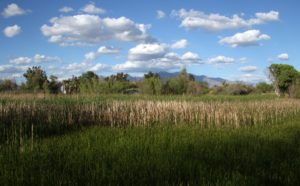
The marshes, recharge basins, and surrounding Sonoran Desert make Sweetwater Wetlands one of the best urban birding sites in the U.S.
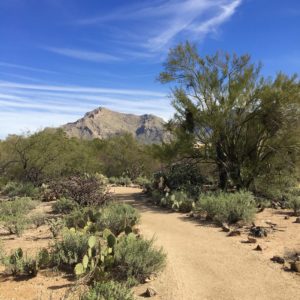
Part botanical garden, part nature preserve, and part cultural museum that is a delightful urban oasis.
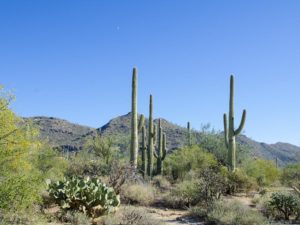
Located just north of Tucson in the town of Marana, the Tortolita Mountains are a great place to see Sonoran Desert plants and animals that also harbors ruins and petroglyphs.

The outdoor living museum has miles of walking trails that take you botanical gardens with beautiful views of the Sonora Desert. Common desert birds live free on the grounds as well as rarer species in the aviaries (including one housing hummingbirds).

A 5,525-acre state park with outstanding riparian woodlands and Sonoran desert, featuring lush Fremont cottonwood, mesquite, and saguaro and many other species of cacti. Hiking trails traverse the Catalina Mountains.

A 4,010-acre site that preserves a portion of Cienega Creek watershed flowing through eastern Pima County. Birders pass through a ocotillo-creosote bush desert scrub into the cool shade of Fremont cottonwoods and Goodding’s willows.

Along the eastern slope of the Rincon Mountain, east of Tucson, and nestled among rural ranching communities. Two of the area’s highlights are Ash Creek and Paige Creek.

The majestic saguaros, ocotillos, and other desert vegetation offer a variety of birds accessible on the park’s three miles of hiking trails.

One of several great birding stops along Mt. Lemmon Highway (aka Catalina Highway) as it winds 27 miles from Tucson, up the mountains before ending at over 9,000 above sea level.
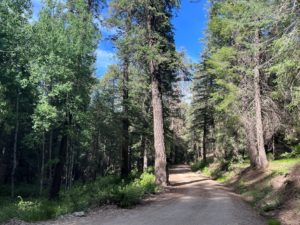
A favorite among local birders seeking the region’s high-elevation summer visitors, such as cordilleran flycatcher, flammulated owl, and northern saw-whet owl.

A must-stop along the Mt. Lemmon Highway, this small 6-acre lake is perched at 7,000 feet above sea level and surrounded by ponderosa pine and oaks, a high-elevation haven for birds, especially for summer breeders.

Along with the 1,500-foot peak, the park is home to many desert birds, mammals, and reptiles. In years with good winter rains, it is famous for its spring wildflower display.
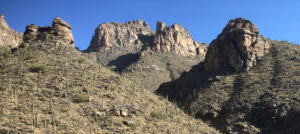
Spectacular views of the Arizona Upland subdivision of the Sonoran desert with abundant opportunities for birding, hiking, and photography. Has paved walking path and tram ride into canyon.

In addition to the saguaros, which are unique to the Sonoran Desert, Saguaro National Park also features mountainous regions where pine and coniferous forests form a canvas of greenery—making this the most bio-diverse desert in Northern America.
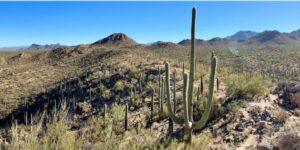
The Tucson Mountain District (West) saguaro forest is a scenically beautiful landscape that harbors of a wide variety of desert plants and wildlife, preserving the culture, wildlife, and landscape of the Sonoran Desert.
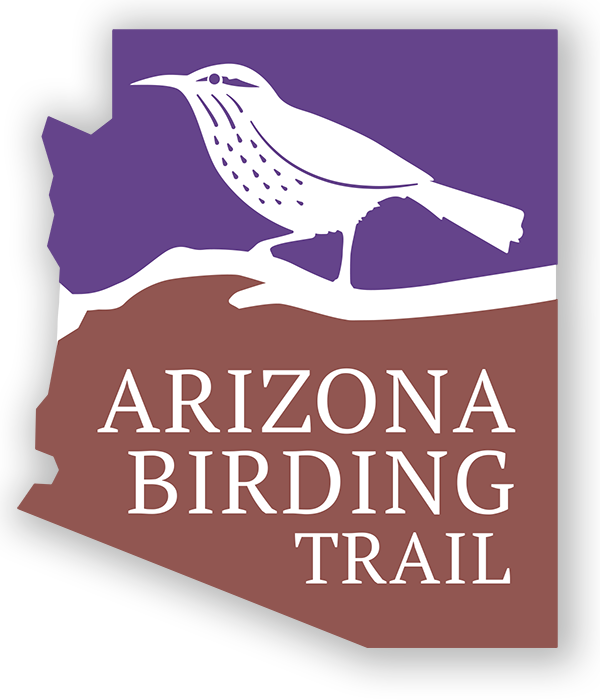
The Arizona Birding Trail is a network of more than 300 birding and watchable wildlife sites across the state. Whether you are a newcomer or an experienced birder, the Arizona Birding Trail is your guide to adventure!
© 2024 Arizona Birding Trail